Around the world, most children come into care not because their families don’t love them, but because they can’t care for them. And far too often, the reason they can’t care for them is because their children have special medical or developmental needs. But through the innovative programs of one long-standing partner in Mongolia, Holt supporters are working to help children thrive — and keep them in the loving care of their families.
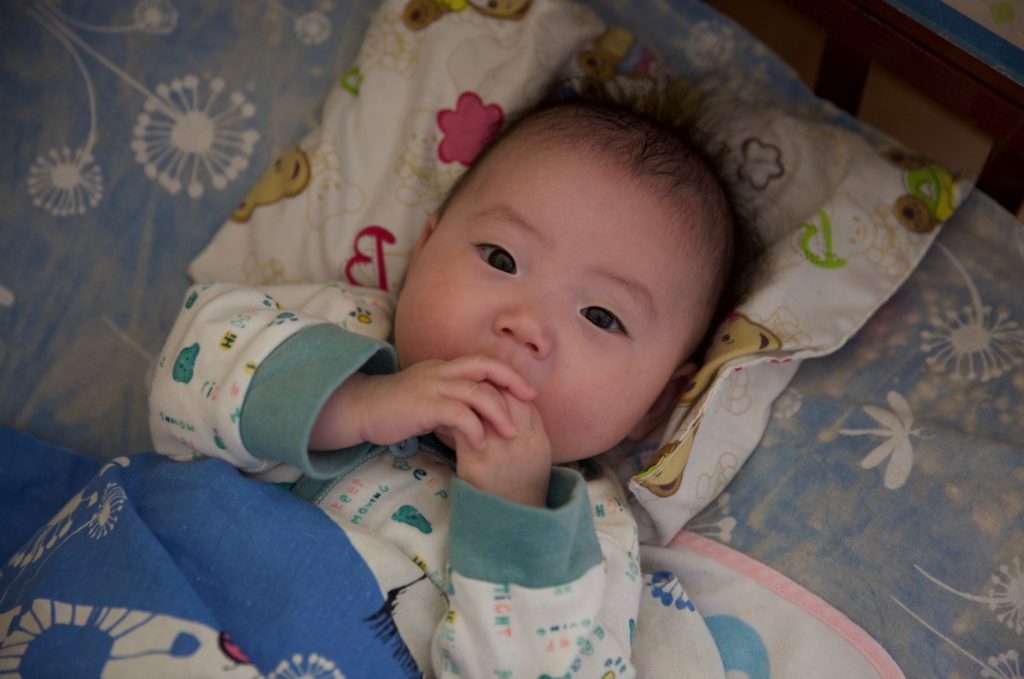
This one was left in a taxi, May says, motioning to a months-old baby girl gumming her fingers from inside her crib. Her father told the driver he would be right back. He just needed to get some cash to pay his fare. He never returned.
May Gombo is the adoption/social service program coordinator for Holt Mongolia. She comes here often, and knows each child’s story.
This girl was found in an open market area, she says of a crusty-nosed little cutie with wispy black hair pulled into a pointy topknot. Her parents are homeless and both are alcoholics — “and they live,” May says, “in a hole.” Like so many of the city’s homeless, this girl and her family are part of the subterranean civilization that seeks heat underground during Ulaanbaatar’s frigid winter months, when temperatures can drop below 40.
When she came into care, at two months old, she had pneumonia and was so malnourished that she needed to be fed by a tube for three weeks. A little over a year later, she’s still small, and a bit delayed, but she’s healthy now — starting to lift herself up in a room full of babies still rolling around on their tummies.
As we survey the littlest residents of this care center, an older boy — sure-footed in soft blue booties and running into rooms he’s not supposed to — comes up to say hello.
“I think he might have somebody,” says May.
Unlike some of the kids in care here at the National Children’s Sanatorium — the state-run orphanage that Holt has supported for the past 18 years — none of these children are true orphans. They all have somebody. But their somebody is in jail, or homeless, or alcoholic or in a mental institution. Their somebody may love them deeply, but they are so desperately poor or sick that they do not have the means to care for them. In some cases, their somebody may visit them and come to take them home again, once they have the resources and stability to provide for them.
But typically, if they intend to take them home, they will be back within a month.
If their somebodies don’t come back, they become “social orphans.”
As families began migrating to the city in the early 90s, nomadic communities disbanded, and families lost the strong social fabric that had for generations provided a critical safety net in times of struggle.
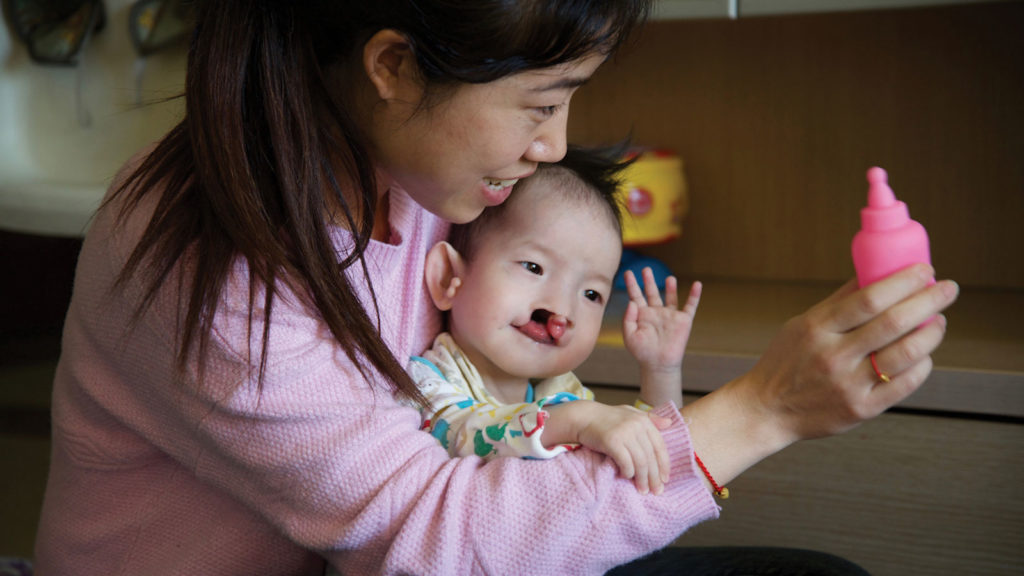
Give to the Molly Holt Fund!
Provide urgently needed medical care to a child in an orphanage with special needs.
In 1997, when representatives from Mongolia first approached Holt for assistance with child welfare services, the country was still grappling with the fall and dissolution of the Soviet Union. Although officially an independent socialist republic, Mongolia had for years relied heavily on Soviet subsides for their state cooperative farms. But after subsidies were eliminated in 1989, land use was divided — and rural Mongolians, then around two-thirds of the population, became caught in the country’s difficult transition to a free market economy. Many families migrated to the city in search of work, but suddenly finding themselves in an unfamiliar urban environment with limited support and opportunities, they struggled to adapt to a new way of life. Alcoholism increased, the number of single-parent households grew and, for the first time, the country faced a social crisis they had never faced before: a massive upswell in the number homeless and abandoned children.
“Mongolia has a culture of caring for each other’s children,” explains Paul Kim, Holt’s U.S.-based director of Mongolia and Korea programs, who has actively led and developed our Mongolia programs since the early 2000s. “It’s a nomadic culture where other families will take in kids if their parents can’t care for them. Child abandonment was foreign before the Soviet Union.”
As families began migrating to the city in the early 90s, nomadic communities disbanded, and families lost the strong social fabric that had for generations provided a critical safety net in times of struggle.
And, as always happens in times of economic and political upheaval, children were among the first to fall victim.
“The number one reason for abandonment is not because they don’t want them,” Paul says of the parents whose children end up at NCS. “It’s economic.”
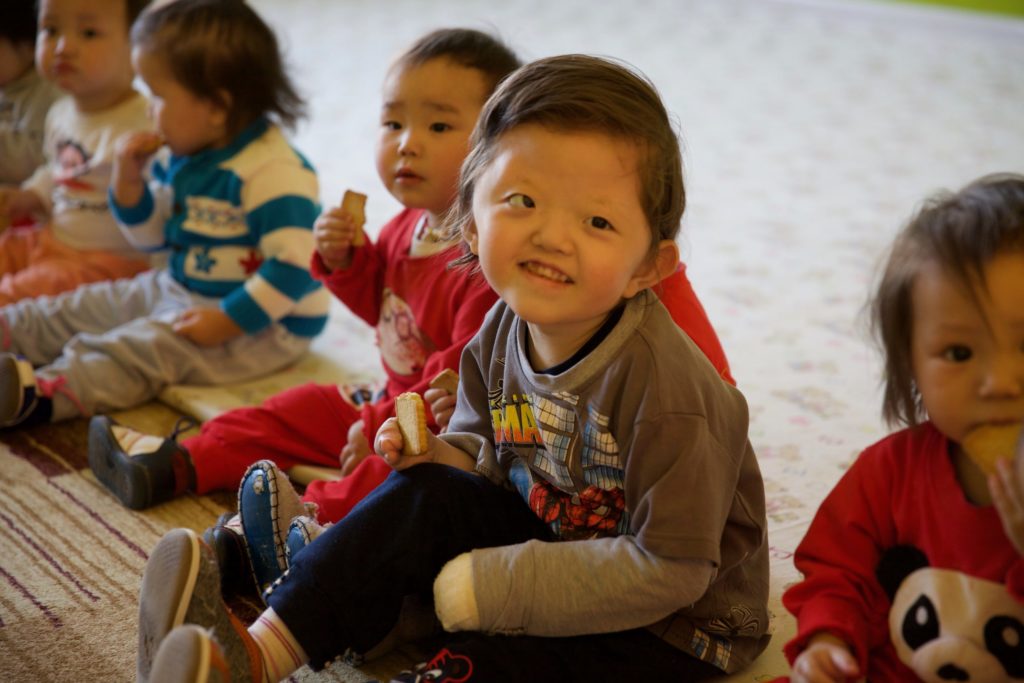
Arslan* is sitting on the floor in a neat row of kiddos, having an afternoon snack, when we meet him. Clearly the oldest in this group, he immediately looks up, smiles for the camera and says words we can’t understand in a cheerful, high-pitched voice. He giggles, offering to share his cracker — a cracker he holds between fingers that are merged together like a little fin. His other hand is tucked away in a cast that pokes out of a long-sleeve Spiderman shirt.
Curious, he follows us into the next room — capturing our attention and our hearts.
To open up his fingers, Arslan recently received surgery on his left hand to separate his thumb from his fingers. He has also received the same surgery on his right hand. But doctors say nothing can be done — in Mongolia — to open up his remaining fingers. Socialized medicine is one holdover from the Soviet era in Mongolia, and Arslan’s surgery was provided free of charge. But quality of care and coverage is considerably less in the new economy, and for everything else Arslan needed — his hospital stay, medicine, bandages, post-op care and recovery — our local partner had to raise the funds.
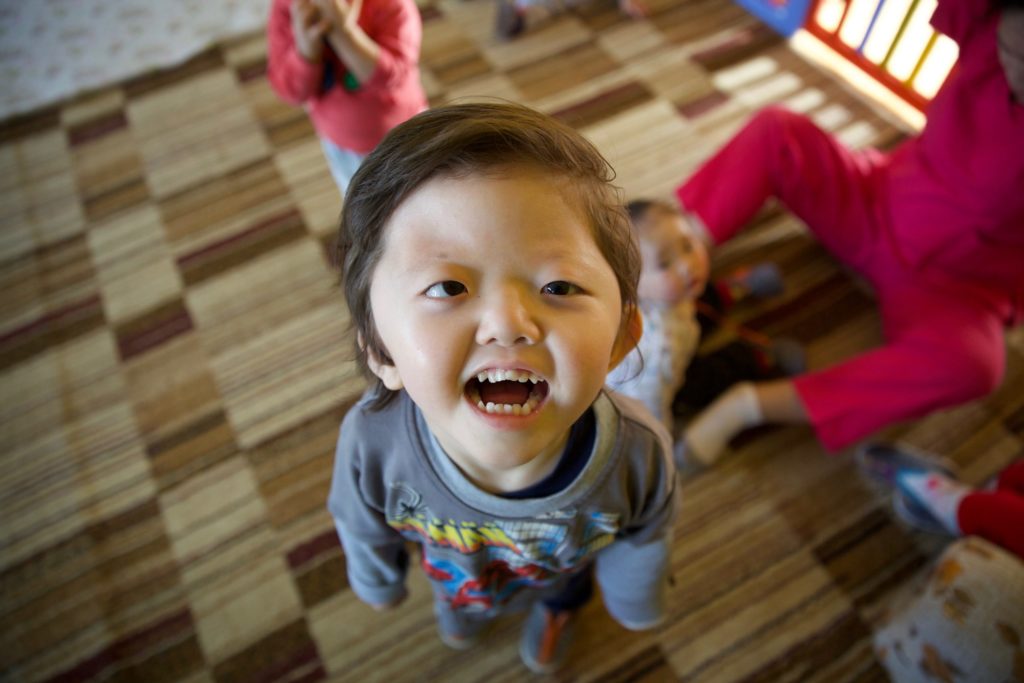
The high cost of medical care for children with special needs is one common reason that children end up in the care of our orphanage partners in Mongolia — and, for that matter, most places Holt works.
The extra time, energy and resources required to care for a child with medical or developmental needs, and subsequent loss of income, is another major factor.
“There’s no one to care for the child at home, so the family has to make a decision — sacrifice working so they can stay home, or relinquish their child to someone else’s care,” Paul says.
“There’s no one to care for the child at home, so the family has to make a decision — sacrifice working so they can stay home, or relinquish their child to someone else’s care.”
Paul Kim, Holt’s U.S.-based director of Mongolia and Korea programs
Diagnosed with Apert syndrome — a genetic condition that affects the shape of the head and face and fuses fingers and toes — Arslan came into care when he was three months old. A young couple, his parents felt they could not care for a child with his needs, and they never came back for him. He is now 5.
In Mongolia, the National Children’s Sanatorium is where kids like Arslan go when their families can’t care for them.
“There are lots of private orphanages in Mongolia, but they can’t admit infants because they don’t have medical professionals or pediatricians,” May explains. “If they have any health problems, they’re sent her to the NCS.”
With 14 pediatricians and 43 nurses on staff, NCS is unique among care centers and has a history closely connected to Holt’s presence in the region.
When Holt came to Mongolia in the late 90s, our first move was to establish ties with this old Soviet orphanage, which was then — and it still is today — Mongolia’s primary government care center for orphaned and abandoned children under age 3. Founded in the mid-1960s as a nursing home for children with disabilities and serious health conditions, the NCS began admitting orphans in the late 1970s, but didn’t accept “social orphans” until 1991 — shortly after the fall of the Soviet Union. From the outside a drab, sand-colored two-story brick building with bars on the windows, the NCS also captured on the inside the sterile Soviet style of its recent past.
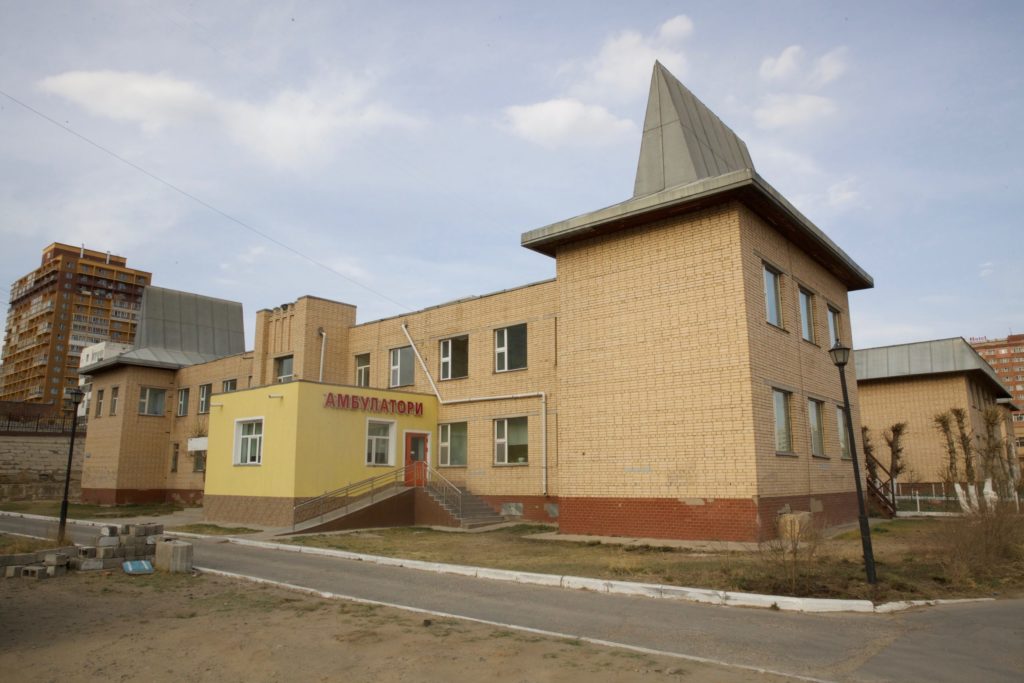
Spare of color and void of joy, it looked and felt like an institution — a “sanatorium.”
But it looks nothing today like it did back then.
With resources from Holt donors, NCS and Holt completely re-envisioned what this home for children should be. They painted over the dark gray walls in bright yellows and blues and greens and reds — coating the corridors in a rainbow of color and lighting up the baby rooms and hallways with a burst of sunshine. With funding from our supporters, Holt also began to address critical needs at the center.
At the time, the NCS didn’t have an incubator for the premature and medically fragile infants that they brought into care. Instead, they used “kangaroo care” — skin-on-skin contact — which, though effective at a 90-percent survival rate, fell short of the advanced medical care available in more developed countries.
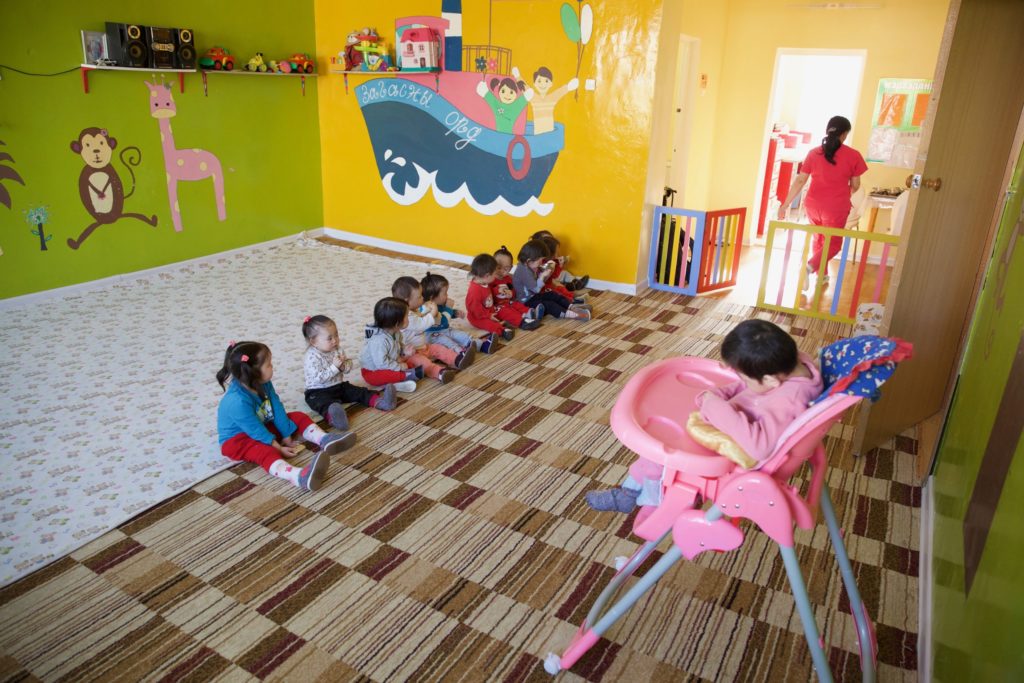
Some of their other practices had more dire consequences.
“When we first began supporting the NCS in 1999, they did childcare based on the old Soviet model. So for anemia, instead of supplements, they did blood transfusions, which caused the spread of Hepatitis-B and other blood-borne illnesses,” explains Paul. “This is one of the first things we addressed.”
Going a step further, Holt helped to develop a complete neonatal care unit in the early 90s, providing at-risk infants and toddlers with the critical medical care, nutrition and nurture they needed to recover and thrive.
Together with our partners at NCS, we named it the Rainbow Special Baby Care Unit (SBCU) — a name “symbolic of what we tried to do here,” says Paul. “It’s a symbol of renewal.”
Eiji* isn’t in the mood to go swimming. This is usually his naptime, but the schedule has changed for today — and he squirms as his caregiver, a part-time occupational therapist, dresses him in his swimsuit and tucks his head into a little duck-billed cap in preparation for his aquatherapy.
The poolroom is steamy and warm, with murals of smiling sea creatures on the walls and cartoon-faced floaties edging the shallow pool. The therapist wraps a floatie around Eiji, and as he slips into the warm water, a look of relaxation comes over him. She coos to him softly, and he relaxes more and more — an unusual sensation for a boy with cerebral palsy, whose muscles are always strung tense and taut like strings on a guitar.
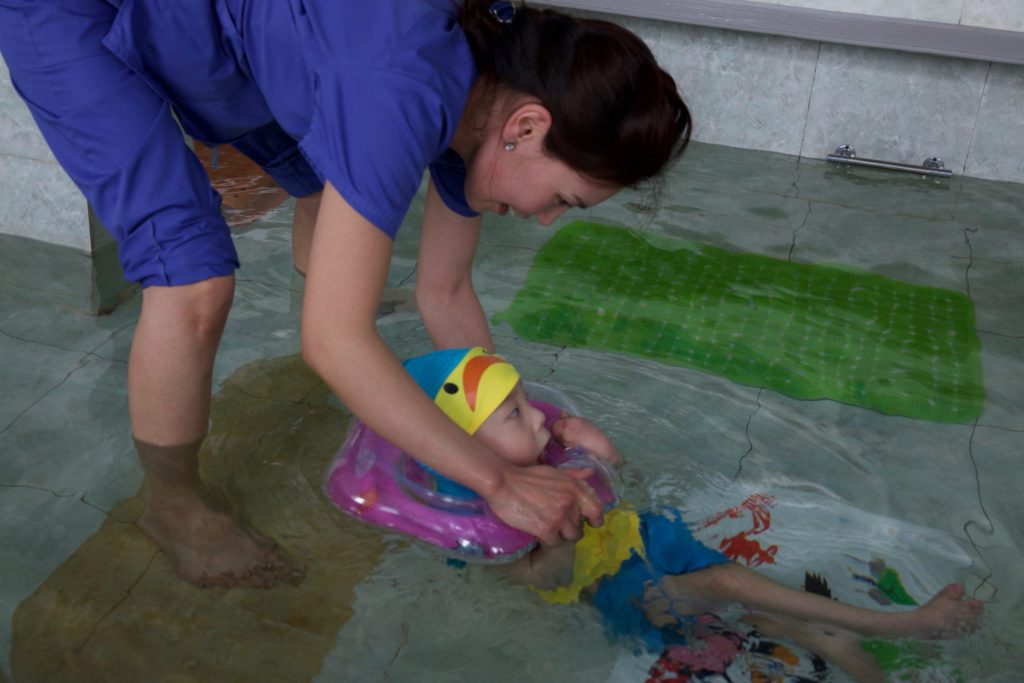
In the pool with Eiji is another little girl with CP — a girl very small for her 7 years — who was found abandoned and brought to NCS. When found, she had a small surgery scar on her head, in indication that her parents may have tried to treat her medical needs. But no one ever came for her.
Eiji, however, has a family.
Eiji is one of ten children who attend the special needs daycare at the National Children’s Sanatorium. The program provides rehabilitative therapies for kids from low-income families.
He is one of ten children who attend the special needs daycare at NCS — a new program that Holt, using generous donor support from the Molly Holt Fund for Children with Special Needs, helped launch just a few months ago. The program provides rehabilitative therapies for kids from low-income families.
“There’s a long list of kids with special needs who need physical therapy and care,” May says. “But they only have a capacity of ten. They stay for one month.” While they’re in the daycare program, their parents also receive training in how to provide therapy and massage and specialized feeding to ensure, for example, that kids with CP eat while sitting up — a critical position to prevent children from choking on their food, and a cornerstone of Holt’s child nutrition program training.
In the afternoon, Eiji’s grandmother comes to pick him up from daycare. A youthful woman with a smile as friendly and playful as her grandson’s, Eiji’s grandmother says that since he started coming for therapy, Eiji’s muscles have become less tight, his understanding is improving and she has learned to feed him while he sits upright in her lap. Eiji’s grandmother shares that his mother is 21, a single mom and a recent college graduate. She is trying to learn English because she believes if she speaks the language well, she will be able to access better care for her son.
Of the daycare parents we meet, this is a common theme. One mother traveled to Korea to seek treatment for her 4-year-old daughter, who also has CP. Another stopped working so she could provide at-home care for her daughter with Down syndrome. And the occupational therapist on staff — the young woman who took Eiji for water therapy — quit her job as a teacher when she gave birth to a child with cerebral palsy. She wanted to ensure her daughter would have the best chance in life. And what better way than to become a therapist herself, and work directly with kids who have the same neurological condition as her own? As a bonus, her 4-year-old daughter comes with her to work every day.
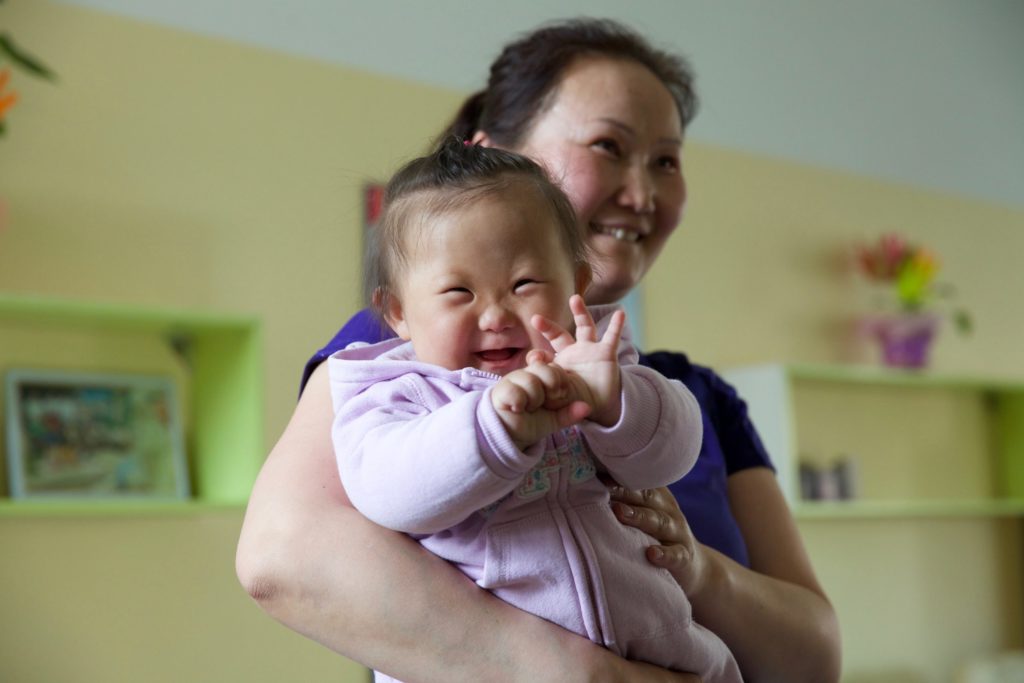
Among these families, there is no lack of dedication to their children. They are willing to make sacrifices.
But that’s one of the reasons the special needs daycare at NCS — the only free daycare of its kind in Mongolia — is so vital.
“By providing daycare, we can provide relief for these families,” says Paul. Relief so they can work, and take time to find alternative care for their children. Relief so their children can receive the kind of rehabilitative therapies they need, and families can learn skills to help their children become more independent — making all their lives easier. Relief so they never have to consider the worst — relinquishing their child to someone else’s care.
“This,” Paul says, “is the kind of thing we hope to do more of.”
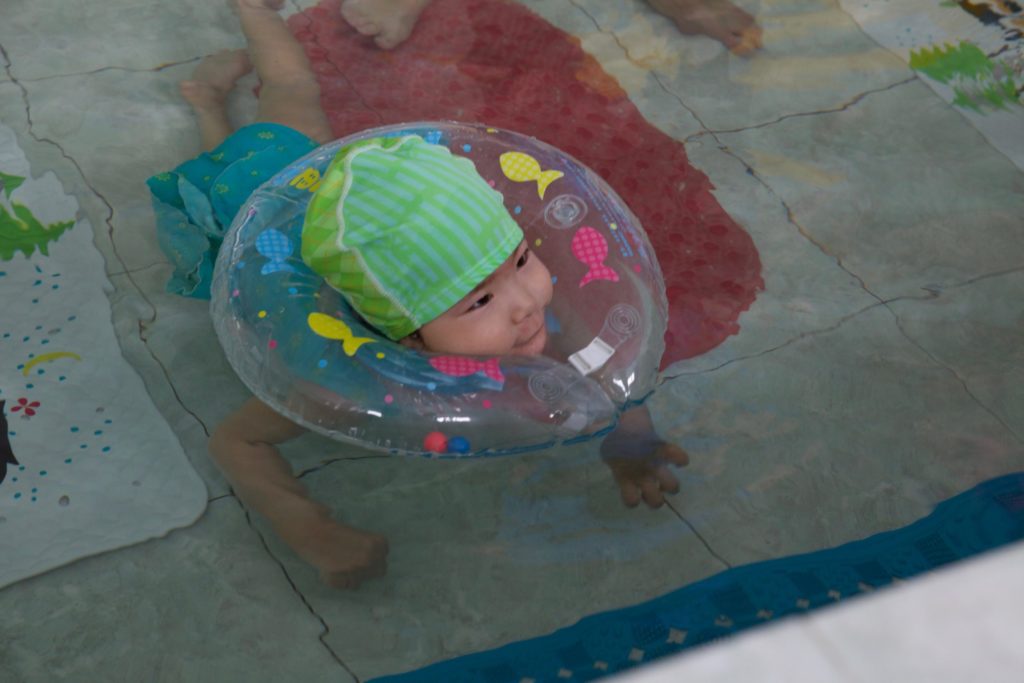
Special needs daycare is one critical way to help keep families together, and it is a model Holt has worked to implement in our country programs around the world.
Special needs daycare is one critical way to help keep families together, and it is a model Holt has worked to implement in our country programs around the world.
But for the children who have stayed in residential care at NCS, their time here can also help them go home to their families — or join families through adoption. Rehabilitative therapy and restored health are essential to a child’s capacity to thrive in a family setting. And through the years, many children from NCS have moved on to a stable, loving home.
Sometimes, when children come to stay at NCS, their moms or dads come with them.
Gerel* sits in half shadow, half light inside the traditional Mongolian home — a “ger” — that she shares with her boyfriend, 3-year-old daughter and three younger brothers on a hillside that overlooks the city. Just to the other side of the hill is the city’s largest garbage dump.
Gerel is 27 years old, bone thin and expressionless.
Her daughter is excited to have visitors, and bounces joyfully from one end of the room to the other — completely oblivious to the concerned looks on the visitors’ faces, to the desperate circumstances of her family.
Gerel doesn’t know what her boyfriend does for money. But he leaves every morning, and always manages to come home with a bottle of vodka. When drunk, she says, he can become angry and violent.
She has a fifth-grade education, and doesn’t work herself. She also has an unrepaired cleft palate that makes it difficult to understand her when she speaks. Her body is so petite, it looks as though she stopped developing around 12 years old. It is clear that both Gerel and her daughter are extremely malnourished.
Then Gerel tells us that she’s 6-months pregnant. She’s expecting a son.
Like so many women and children living in poverty in Ulaanbaatar, Gerel and her daughter have stayed in an unsafe situation simply because they have nowhere else to go.
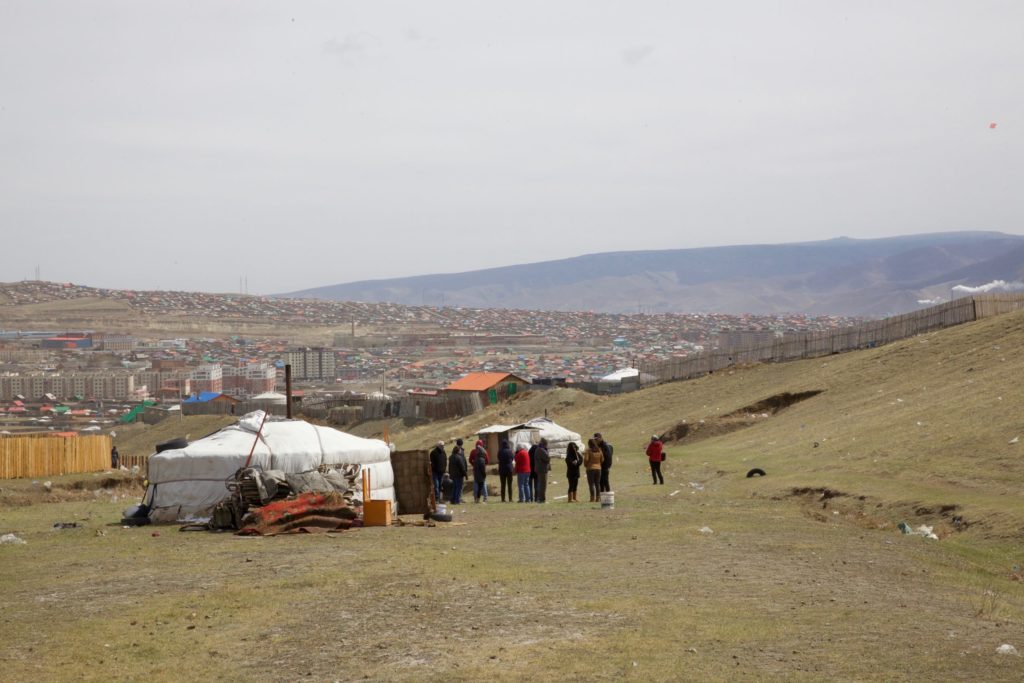
“About 70-80 percent of abuse victims come from poor families and their education is very low,” explains Undrakh Sondra, the coordinator of Mongolia’s National Center Against Violence and the director of a domestic violence shelter that Holt supports in the city. “They don’t have a place to live even if they return because the home is in the name of their husband.”
This is the first time our team in Mongolia has met Gerel and her family, and after we leave, they make a plan. Gerel’s daughter will be enrolled in our sponsorship program, through which she will be matched with a Holt sponsor in the U.S. who will provide monthly support for food, education, clothing and other critical needs.
As soon as possible, they will also arrange for Gerel and her daughter to stay at NCS, where Gerel can receive prenatal care and both she and her daughter can receive rehabilitative care for malnutrition. Gerel can learn skills to care for her newborn, and if he’s born premature, they can transfer to the premie department at NCS for another four weeks while her son gains weight and receives medical care.
But what happens after that, our staff is not sure yet.
“About 70-80 percent of abuse victims come from poor families and their education is very low. They don’t have a place to live even if they return because the home is in the name of their husband.”
Undrakh Sondra, coordinator of Mongolia’s National Center Against Violence
In Mongolia, there is no formal way to relinquish a child for adoption. It is neither socially accepted nor legally permitted. And as long as a child is still connected to their family, they will never become eligible for either domestic or international adoption.
If a search is unsuccessful — if police officers fail to locate the parents of the baby whose father left her in a taxi — the child can be placed with a family. Arslan, too, could go home to a family. After five years in care, with not one visit from a family member, he has become eligible for adoption.**
But for children like the little girl whose family lives underground and the boy in blue booties who runs into rooms he isn’t supposed to, the future is more uncertain. Even though the girl from underground required tube feeding when she came into care, even though neither of their families may be able to care for them, these children have somebody — somebody who may or may not come back for them.
Somebody who really does love them, and maybe should be given a second chance to care for them.
Or maybe not.
That’s for a social worker to determine.
In the meantime, they will stay in care at NCS. They will be loved and doted on by a team of nannies and nurses. They will play in rooms full of light and color, receive physical therapy and speech therapy and aquatherapy in a shallow pool of warm water, learn to walk and talk and stack blocks and sing songs, eat nourishing meals in the way that’s best for their age and special needs, and snuggle into a safe, warm bed at night.
And when they get too old for NCS, they will go to Kindergarten #58 — the state care center Holt supports for older children who may or may not have somebody of their own.
A week after we arrive back in the states, we receive an update about Gerel and her daughter. It is two days before Mother’s Day.
“I know that all of us were deeply moved and greatly concerned by the plight of the young pregnant mother we met who lived with her young daughter and her younger siblings,” Paul writes to our team of Holt staff and donors who traveled to Mongolia, and visited Gerel and her daughter.
“After we met her, it was our plan to help her and her family to escape this situation, and to be able to stay together in a safe environment. I am happy to let you all know, that yesterday, our staff took the mother and her young daughter to the NCS, and was able to arrange for them to stay in care for two weeks, safe and warm, to begin the rehabilitation process for their health.”
But that’s not all.
Before traveling to Mongolia, this team of donors raised the funds to build gers for four families. But while in country, two Holt donors felt so moved by the situation of another family, that they donated enough money to build them a ger, too. That’s a story of another family, for another day — but it’s a story intertwined with Gerel’s.
Because, Paul writes, “I am even happier to let you all know, that from the donation made by Kim and Skip (Hanson) … there was just enough funds left over for the purchase of another ger.”
A ger for Gerel, her 3-year-old daughter, her three younger siblings and, in 3 months, her newborn son.
“So they will never have to return to that abusive situation again.”
*all names changed to protect the identities of children and families in this story
**Holt is not currently accepting applications for adoption from Mongolia, but we hope to reopen the program in the future.

Give to the Molly Holt Fund!
Provide urgently needed medical care to a child in an orphanage with special needs.
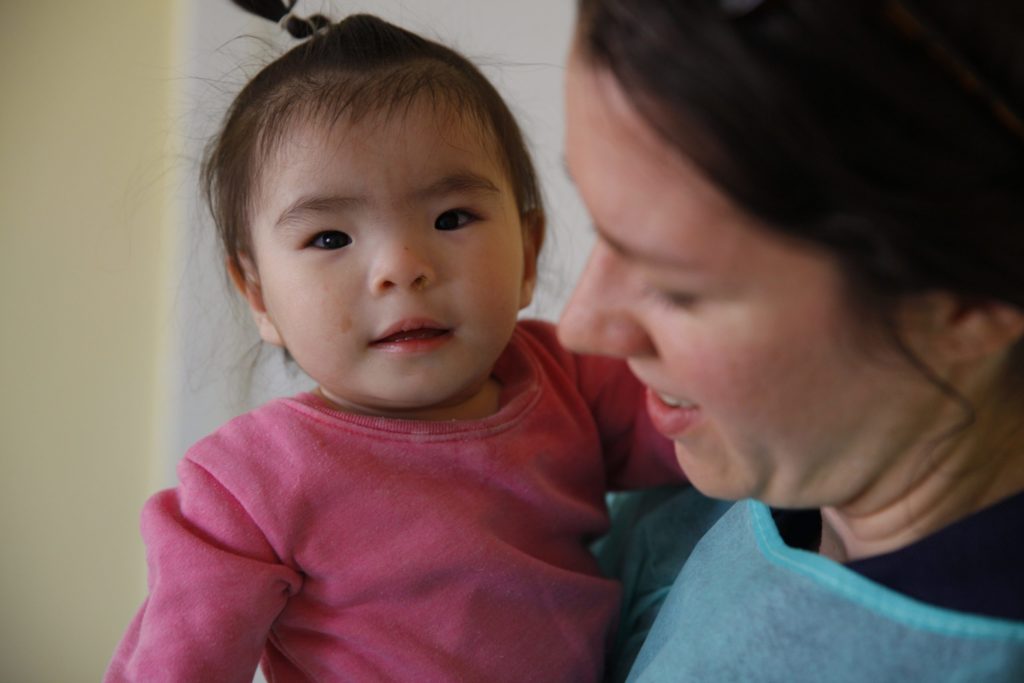
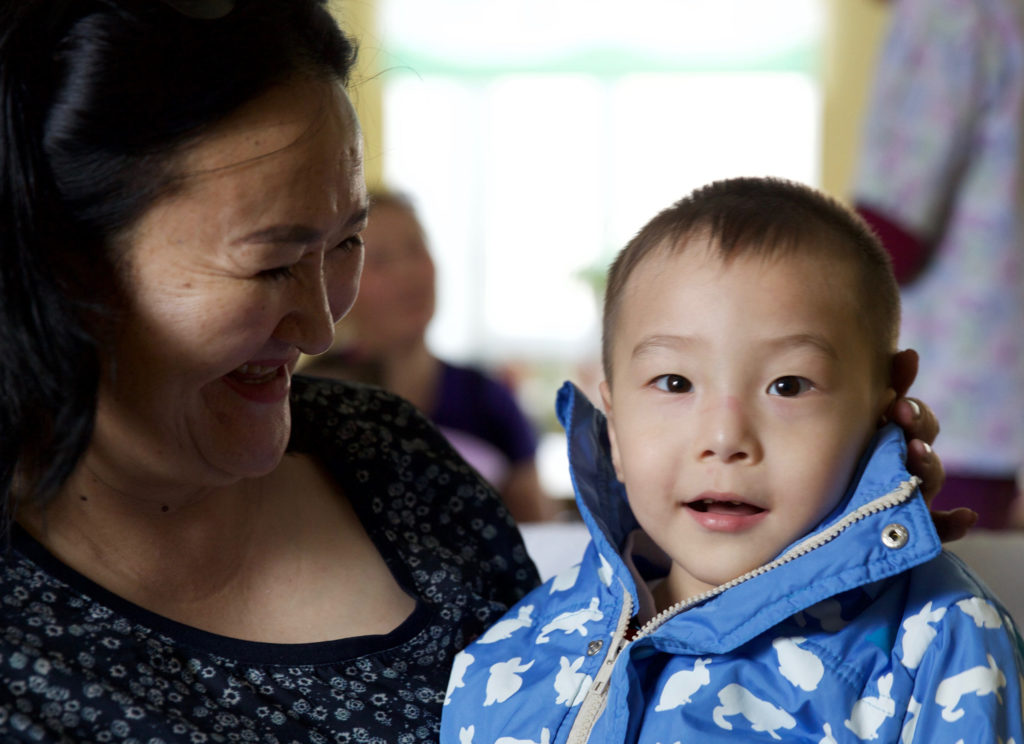

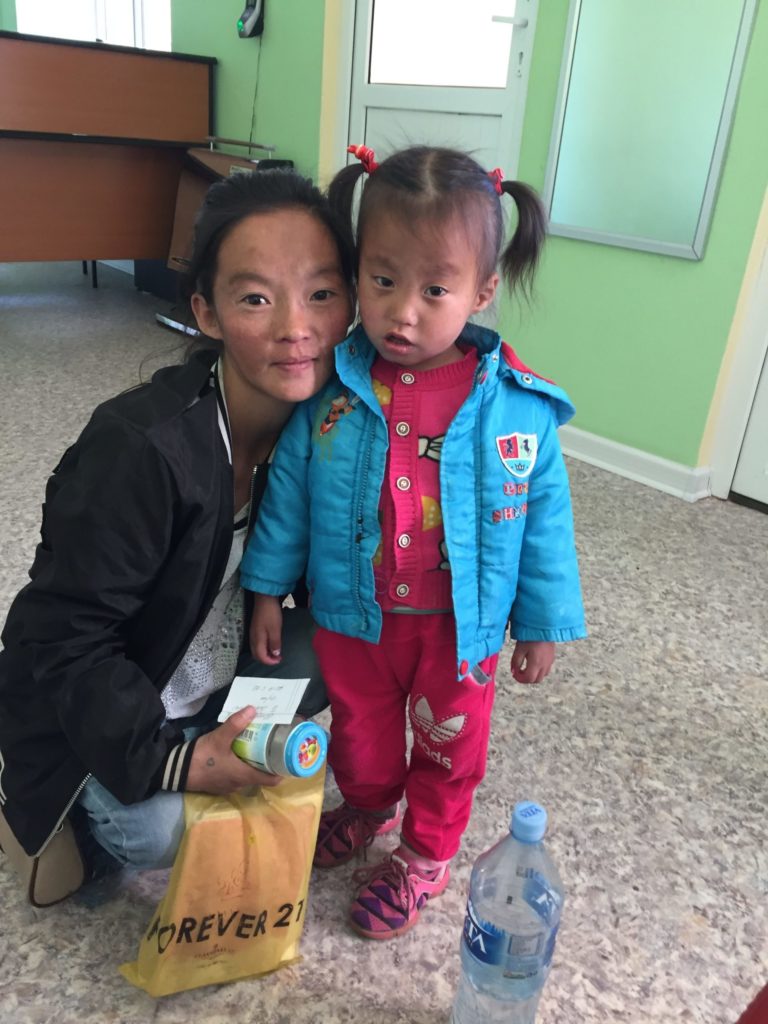
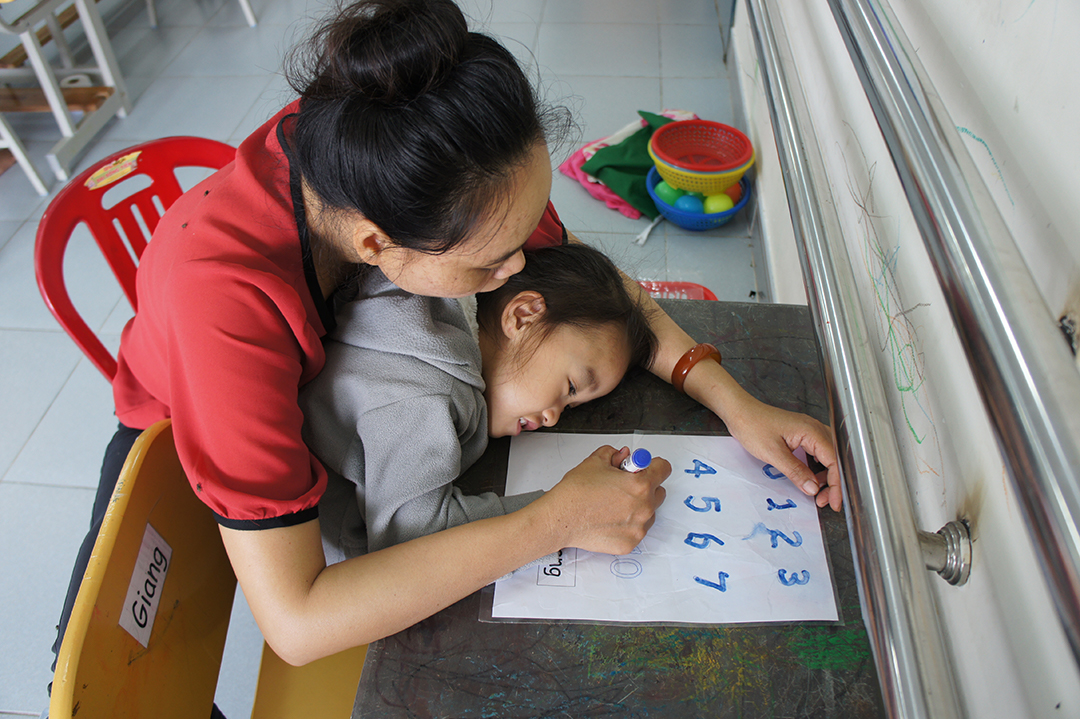
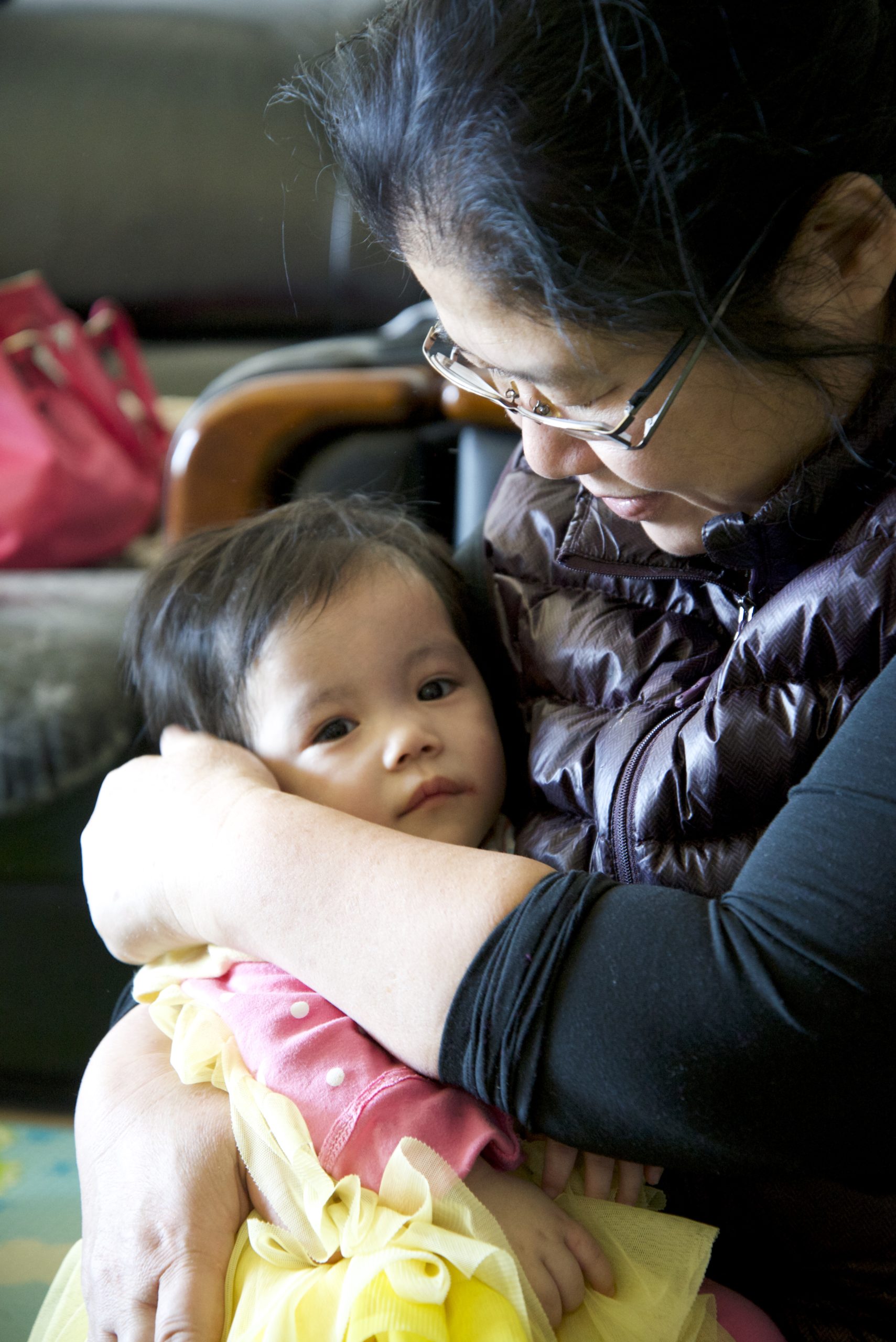
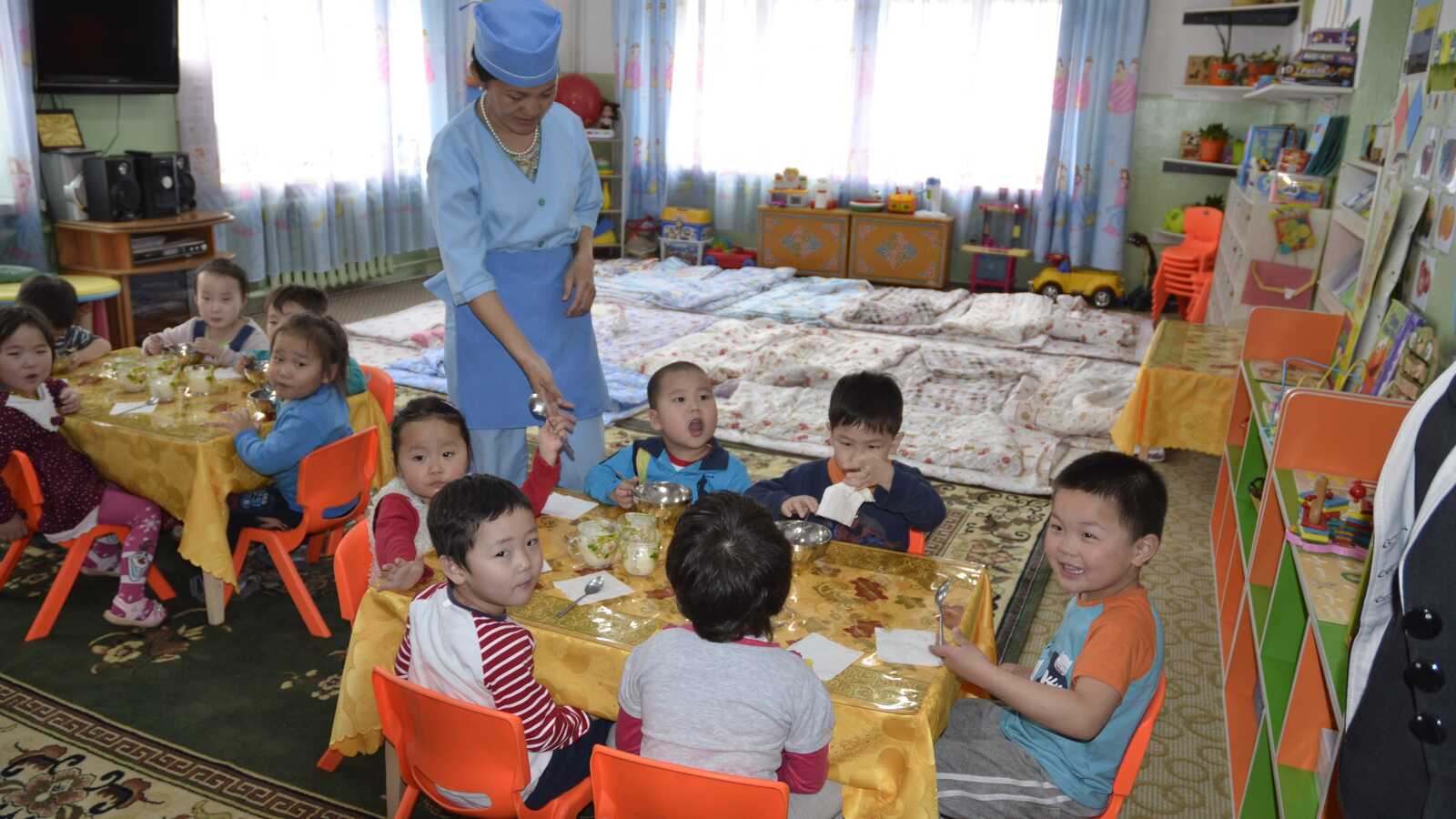


Hello,
Thank you for the article. I’m doing research on Mongolian adoption and am having trouble finding further information about the NCS in Ulaanbaatar. Could anyone offer some links/resources where I can find out more?
Thank you very much in advance!
Hi Timothy! You can learn more about our various programs in Mongolia, including our partnership with the National Children’s Sanatorium on our website at https://www.holtinternational.org/about/mongolia/. Also, our Mongolia Program Director’s contact information is available at the bottom of the page for any further questions you may have. Thank you!